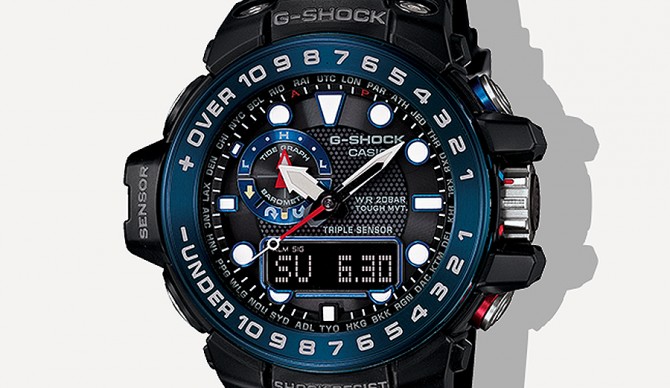
“Hey dude, you got the time?” Head out for any morning session and at least three and a half people will pop that question your way. If you regularly jump in the ocean with just a rough idea of when you frantically bolted from the car, into your wetsuit and straight down the beach like yours truly, then you’re actually one of those three and a half people. If you’re starting to catch my drift, I’m one of those three and a half people (give or take) every morning. I pop in the ocean with a vague idea of how much time I can surf before putting myself in a position to play catch up for the rest of the day or just flat out being late to work. Since I’ve actually failed at the whole “being on time” game most of my life I just threw in the towel and built a lifestyle (aka career) in an arena that isn’t super particular about sticking to clocks. The plus side is my mornings eventually became a lot less stressful.
Back to my original point, you can always count on one person in the lineup to be wearing a watch under his or her wetsuit cuffs. By default this person is now responsible for answering all sorts of generic lineup ice breakers as well as making sure you get to work on time or at least back to your car before the El Porto parking authorities pounce on that expired meter. “Do you know what the tide’s doing,” and other generic surf forecast questions are usually things we start to throw at Father Time as well, because if dude is prepared enough to wear a watch in the water then they must have charted all this other stuff too. But overall it’s fair to point out that these are all very common inquiries we toss back and forth between sets. Maybe it’s small talk, maybe you genuinely want to know, but odds are a majority of the people in the water don’t have those answers prepped.
Being one of the regularly late and often-not-knowing-what-the-tide-is-doing breed I’ve always found it hard to wear a watch in the water. I don’t wear them on land so tucking one under a wetsuit cuff doesn’t feel natural either – like wearing ear plugs I’d always forget them in my car anyway. So when somebody asked me to test out the G-Shock Gulfmaster I told myself it was more of a toy/gadget instead of a watch. And like a toy I’ve found myself fascinated with learning how to use the damn thing. Dare I say, I think I’m even getting smarter with this whole surfboard riding fad. Imagine a “watch” built for the full waterman (as much as I avoid using that term). It’s like a Swiss Army Knife of timekeeping in the ocean. There are actually a laundry list of features on the Gulfmaster that the tech savy (or Navy Seals) would want to know about this watch but I’m going to point out the ones that I find useful around wave catching time.
First off, there are several functions on the Gulfmaster and therefore more than a couple readings to familiarize yourself with. I honestly let this watch sit on my desk for a couple days before cracking open the manual simply because the thing looked a bit intimidating. You technically don’t even have to set the time because it has a sensor that calibrates based on your home city various times of the day. But I had no clue when I first opened the box and tried twisting the crown like a standard watch, waiting for the minute and hour hands to spin around. There is a tide reading function that not only gives you a sense of the where the tide is, but whether it’s filling or dropping at the moment. Naturally that was the first thing I learned to read and use. Currently I’m reading through the manual to understand how the atmospheric pressure readings on the watch work. A hand points to a number engraved on the bezel, while the angle of the hand indicates the magnitude of the pressure change. Any sudden spikes or drops in pressure are indicated with an arrow in the inset dial and an accompanying alarm signal. Translation: this thing tells you when the weather is about to make a significant change. Yes, of all the thermometers, barometers, altimeters, world clocks and solar charging functions that came with this thing I’m currently trying to use it to predict the weather. And that’s darn cool. In fact, of all the things we regularly ask other people in the lineup like what the tide is doing and of course, what’s the time, I don’t think I’ve ever heard a request to predict the weather. And predicting the weather should definitely trump knowing the time.
Yes, the Gulfmaster has a lot of functions and buttons and settings for a “watch.” Initially that was a gripe of mine. But as you start to learn the functionality of all these things it’s actually pretty hard to go back to being the guy in the lineup who doesn’t even know what time it is. Besides, I stopped worrying about being late a long time ago anyway.
Editor’s Note: This #RADGEAR was created along with our good friends at Casio.

